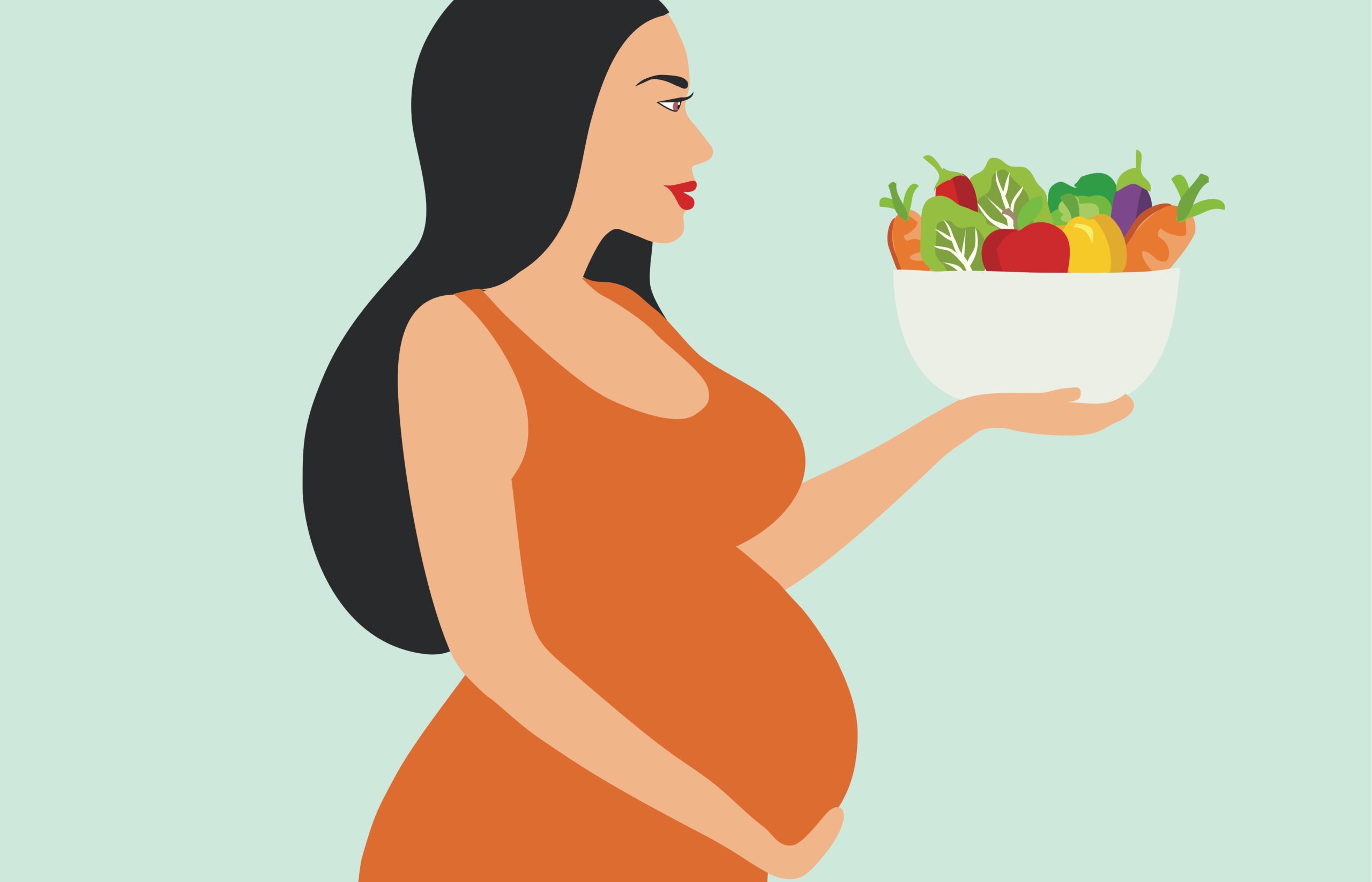Eating a variety of nutritious foods helps pregnant women and their babies stay healthy. Yet, most healthcare providers focus on weight, weight gain, or birth complications, which paints an incomplete picture of women’s health and well-being during pregnancy and postpartum. In fact, complex and interacting influences — stress, motivation, advice, appetite, hormones and the like — can drive food choices.
UNC Charlotte health psychology doctoral student Jan Mooney is expanding her research in this and other issues of maternal health, with support from a National Institutes of Health (NIH) Intramural Research Training Award. The fellowship from the Eunice Kennedy Shriver National Institute of Child Health and Human Development (NICHD) will allow Mooney to work closely with NIH scientists.
“I would like to contribute to the field of maternal health and well-being by advancing our understanding of influences on maternal appetite during pregnancy and postpartum,” Mooney said. “My hope is that I will also have the opportunity to collaborate with researchers from other groups and disciplines to learn more about the different perspectives that can be useful when formulating questions about maternal health and well-being.”
The Institute is one of 27 institutes and centers that comprise the National Institutes of Health and leads research and training to understand human development, improve reproductive health, enhance the lives of children and adolescents, and optimize abilities for all.
With her prized fellowship, Mooney will enhance her ability to use advanced statistical techniques, particularly to analyze longitudinal data, building on what she has learned in UNC Charlotte courses. She also hopes to improve her scientific writing and communication skills and to polish her dissertation.
“The fellowship will help to prepare me for a career in interdisciplinary research that involves both independent data collection as well as the use of existing data to answer a diverse set of questions,” she said. “In the future, I would like to work in an academic medical center setting in both research and direct clinical service contexts, with as much integration as possible between these. One avenue for this might involve intervention development and evaluation to improve well-being through approaches that consider the body as a resource and source of information.”
“In the future, I would like to work in an academic medical center setting in both research and direct clinical service contexts, with as much integration as possible between these. One avenue for this might involve intervention development and evaluation to improve well-being through approaches that consider the body as a resource and source of information.”
— NIH Award Recipient Jan Mooney
This focus could include work with individuals who are exposed to risk and harm as the result of oppressive and discriminatory structures, such as people who identify as Black, Indigenous or people of color, or people who are pregnant/postpartum, gender and/or sexually diverse.
Jennifer Webb, who is Mooney’s primary mentor at UNC Charlotte, and V. Gil-Rivas, director of UNC Charlotte’s Health Psychology Ph.D. program, encouraged her to seek the fellowship.

“I would not be where I am today without the support, guidance, and patience of Dr. Webb, who helped me improve my candidacy for graduate school, welcomed me into the world of maternal well-being, read over many, many unfunded proposals and unselected applications of mine, and continues to challenge me to keep growing on a regular basis,” Mooney said. She also credits Gil-Rivas with urging her to pursue her dreams.
Webb, an associate professor in the Department of Psychological Science, details the doctoral candidate’s persistence, applied research efforts and pursuit of opportunities that align with her training goals and social justice values.
“She is such a sophisticated learner who is constantly inspiring me to continue to learn and grow as a mentor and instructor,” Webb said. “Jan embodies a wealth of grit and perseverance.”
Mooney distinguished herself previously through a summer research fellowship with NIH mentors, particularly Tonja Nansel and Leah Lipsky.
“Among other things,” Webb said, “that fellowship led to notable dissemination opportunities including a first-author poster presentation at the Society of Behavioral Medicine as well as a first-author manuscript published in Appetite. I have been so impressed by the manner in which Jan nurtured these relationships, which have directly resulted in this current dissertation fellowship outcome and the opportunity for me to join the collaborative team in support of her training and achieving this milestone.”
Like her mentors, Mooney focuses on giving back to others. She has done this in part through the Charlotte non-profit GenOne, with which she volunteered as a navigator, or mentor. GenOne partners with students from under-served communities who will be first-generation college students, helping them successfully navigate to and through college. Having seen what higher education can contribute to people’s lives, including her own, she is committed to inspiring others to pursue college.
About the Doctoral Program in Health Psychology
The Doctoral Program in Health Psychology at UNC Charlotte offers training in the concentration areas of clinical, community, and general. The clinical health psychology program has received re-accreditation until 2027 by the American Psychological Association. The Clinical Health Psychology program was ranked second among North Carolina’s public universities with included programs in the U.S. News & World Report’s 2021 rankings and in the top 38 percent of the 231 clinical psychology programs considered in the Best Health Schools rankings.
Words: Lynn Roberson
Photo of Jan Mooney and her dog Cora courtesy of Mooney








